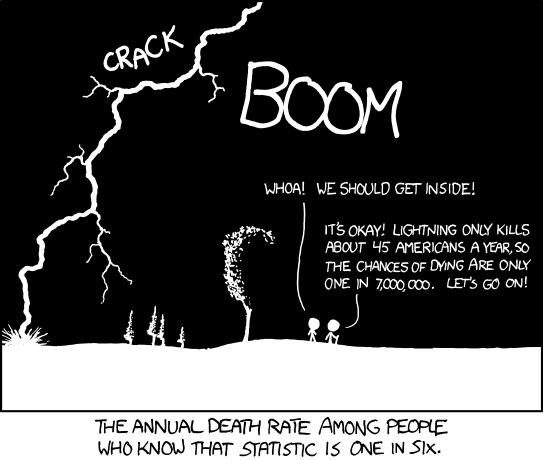kent_allard_jr (![[personal profile]](https://www.dreamwidth.org/img/silk/identity/user.png) kent_allard_jr) wrote2010-09-20 01:32 pm
kent_allard_jr) wrote2010-09-20 01:32 pm
Fun with Bayes!
I'm always happy when xkcd does stat jokes:

I may talk about Bayes' Theorem in class this semester (the first time I'll be doing so). For those who enjoy these little games... Assume only 1 in 2 million Americans knows 'that statistic.' If you walk down the road and find an American killed by lightening, what's the chance that he knew it?

I may talk about Bayes' Theorem in class this semester (the first time I'll be doing so). For those who enjoy these little games... Assume only 1 in 2 million Americans knows 'that statistic.' If you walk down the road and find an American killed by lightening, what's the chance that he knew it?
no subject
Taking the cartoon's stated figure of 45 Americans killed by lightning each year, which should include the 25 described above, that means that 55% of lightning deaths are people who know the statistic.
no subject
no subject
no subject
I figure our estimates are close enough, given the imprecision of the data sources.
no subject
no subject